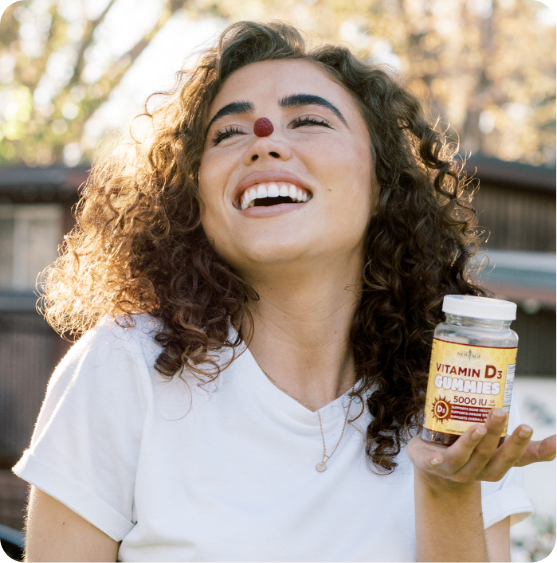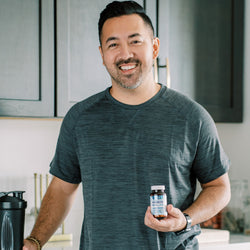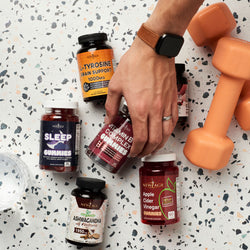
Coenzyme Q10 (CoQ10) also referred to as ubiquinone is a naturally occurring antioxidant found in a majority of aerobic organisms, from simple bacteria to mammals. The number 10 in its name refers to the number of isoprene repeats in its chemical makeup.
WHERE DO YOU FIND COQ10 IN THE HUMAN BODY?
Coenzyme Q10 is abundant in human tissues, though its levels vary. Levels are highest in organs with the highest metabolism rates, such as the liver, kidney, and heart (54.9, 66.5, and 114 grams per gram of tissue, respectively), where it works as an energy transfer molecule.
WHY IS COQ10 IMPORTANT FOR OUR BODIES OVERALL?
Since most cellular functions depend on sufficient adenosine triphosphate supply (aka ATP or the carrier of energy for cells), Coenzyme Q10 is important for almost all organ and tissue health. CoQ10 is one of the most vital lipid antioxidants, which thwarts free radicals’ generation and any modifications of DNA, lipids, and proteins as a result of those free radicals.
COQ10 AND THE HEART
Heart disease continues to be the leading cause of death for men and women in the United States. According to the CDC one person dies every 36 seconds of cardiovascular disease, which equals to an average of 1 in 4 deaths each year.
Heart failure is usually a result of several heart conditions like high blood pressure or coronary heart disease. These conditions can lead to inflammation of the veins and arteries and increased oxidative damage. Heart failure will occur when these problems affect the heart to a point where it is unable to perform its basic functions such as relax, contract, or pump blood through the body.
A research study that involved 420 people, and carried out over two years, showed that treatment with Coenzyme Q10 improved the participants' symptoms and reduced their risk of dying from heart-related problems. Treatment with Coenzyme Q10 helps improve heart function, reduce oxidative damage, and restore optimal energy production levels.
CoQ10 has also been shown to help lower blood pressure and has also been shown to be helpful when recovering from certain type of heart surgery.

TAKING COQ10 AS A PREVENTATIVE MEASURE*
In the simplest terms, Coenzyme Q10 is an antioxidant that the body produces but the body’s production of it as well as the concentration levels in the body significantly decreases as you age. Antioxidants like CoQ10 can counteract free radicals and may decrease or even help avert some of the damage. In addition, CoQ10 augments the immune system, improves energy and helps prevent the formation of clots.
Although it can be found in food sources such as meat, nuts, and fish the amounts found are not enough to dramatically affect the levels in your body—that’s where CoQ10 supplements come into play.
Since CoQ10 is fat soluble, which means it is absorbed and transferred in a manner similar to fats, it is ideally taken with a meal so your body can better absorb it. It is also possible that taking CoQ10 at night may help with the body's ability to use and metabolize it.
Overall, CoQ10 is a good preventative measure for heart disease and its related problems. As always, supplements should never be substituted for other healthy habits such as regular diet and exercise.
*Taking statins could affect the level of CoQ10 present in a person’s blood. Additionally, CoQ10 could interfere with anticoagulants (blood thinners), insulin, and some chemotherapy drugs, so always consult your physician before adding any dietary supplement to your wellness routine.













